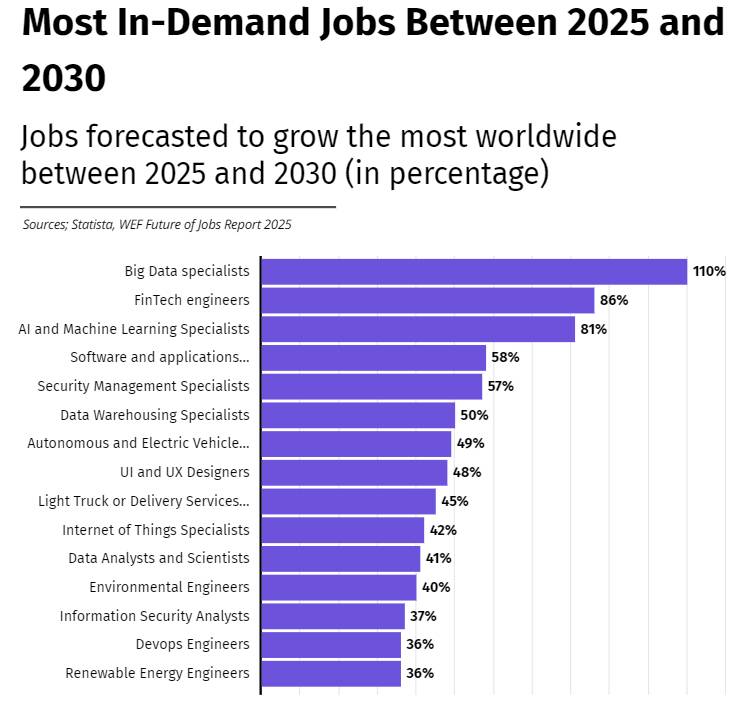Top 5 most in-demand jobs in 2025: Big Data and FinTech take the lead
Decline expected in clerical roles as automation reshapes traditional jobs

DUBAI: The rapid advancement of AI, blockchain, and automation has redefined industries globally, pushing businesses to embrace new technologies to stay competitive.
With these changes, the job market has undergone a seismic shift, creating unprecedented opportunities in tech-driven roles.
According to Stocklytics.com, the top five fastest-growing jobs for 2025 include big data specialists, fintech engineers, machine learning experts, app developers, and security managers. These roles cater to the increasing demand for innovation, security, and seamless customer experiences.
Data skills dominate
At the forefront are big data specialists, driving progress in industries such as healthcare, finance, and retail. These professionals manage complex datasets that fuel fraud detection systems, predictive analytics, and personalised recommendations. The World Economic Forum (WEF) projects an astounding 110 percent growth in this field between 2025 and 2030, making it the most in-demand job globally.
Following closely, fintech engineers are revolutionising financial technologies, from blockchain-based solutions to digital payment systems. With a projected 86 percent growth in the next five years, their role remains pivotal in reshaping how consumers interact with money.
Machine learning specialists, once topping the charts, are now third, with an anticipated 81 percent increase by 2030. Their expertise continues to be essential as AI-powered systems become increasingly integrated into business operations.

Rise of developers
The digital landscape's expansion has also elevated the need for app developers, with a forecasted 58 percent growth, and security managers, predicted to see a 57 percent rise. Both roles address critical needs – enhancing user experiences and safeguarding data amidst escalating cyber threats.
Meanwhile, other promising fields include autonomous vehicle specialists, data warehouse engineers, and UI/UX designers, all expected to witness considerable demand in the near future.
Automation shrinks traditional roles
While new opportunities abound, the rise of automation is reshaping conventional jobs. The WEF anticipates a sharp decline of 25–35 percent in positions such as postal service clerks, bank tellers, and data entry professionals. Similarly, secretaries, cashiers, and administrative assistants face declining demand as organisations prioritise automated systems.
AI: Catalyst for growth
AI's transformative impact extends beyond job displacement to creation. The 2024 Work Trend Index Annual Report highlighted that 75 percent of employees used AI tools last year, with SMEs leading this trend. Notably, two-thirds of tech leaders showed a preference for hiring candidates with AI skills over more experienced individuals without them.
This growing reliance on AI is poised to generate immense opportunities. By 2030, the WEF predicts AI will create over 170 million new roles, making it a pivotal driver of employment growth. For those willing to adapt and upskill, the future of work offers immense promise.